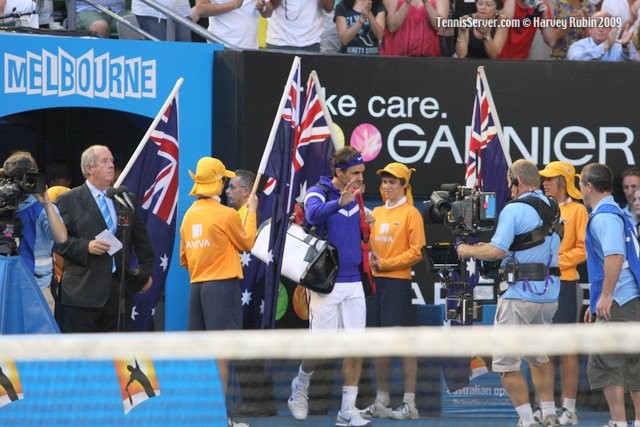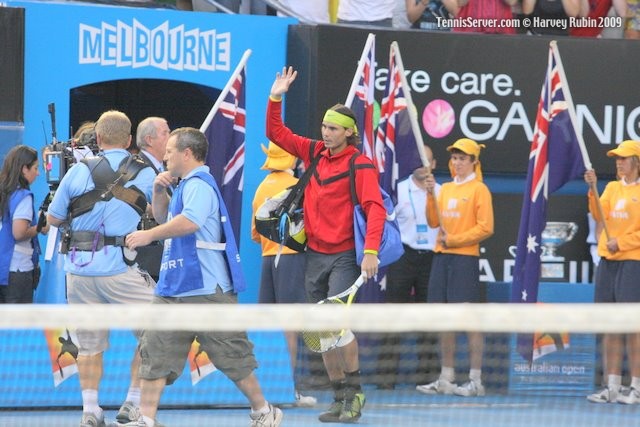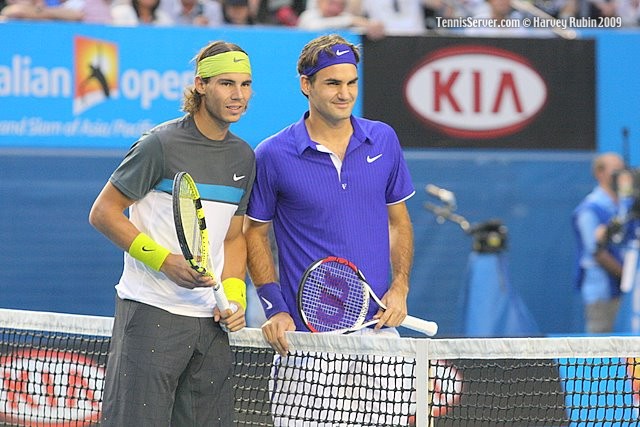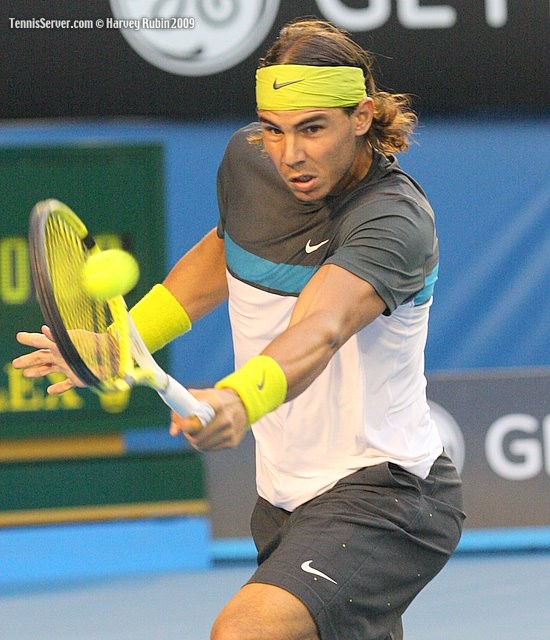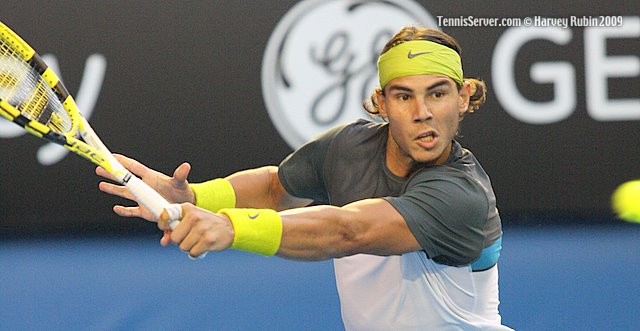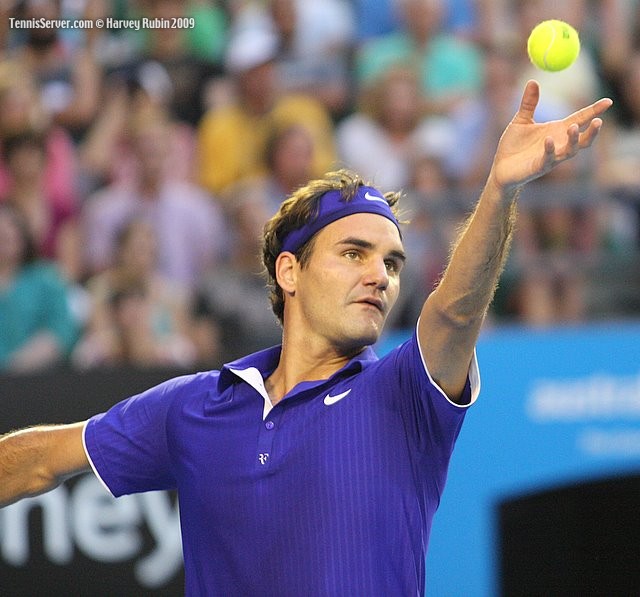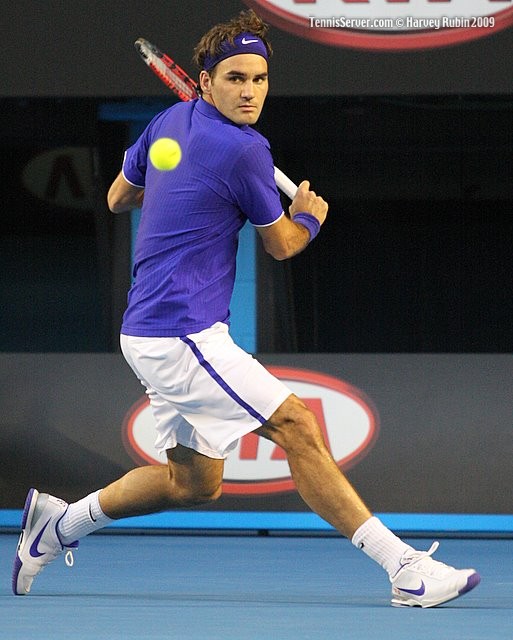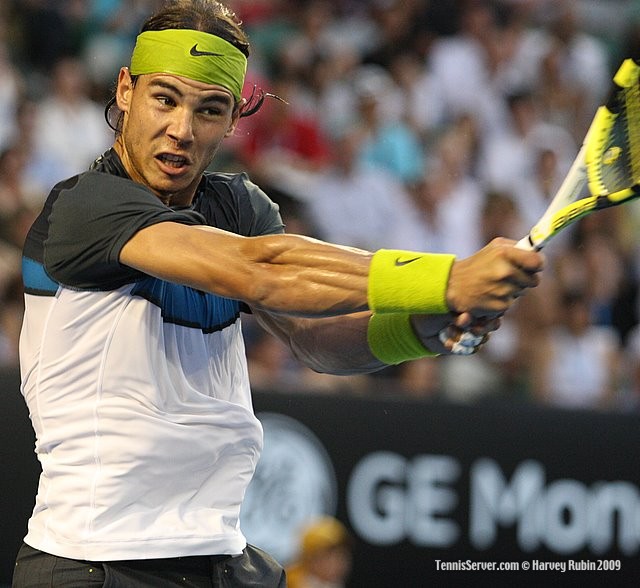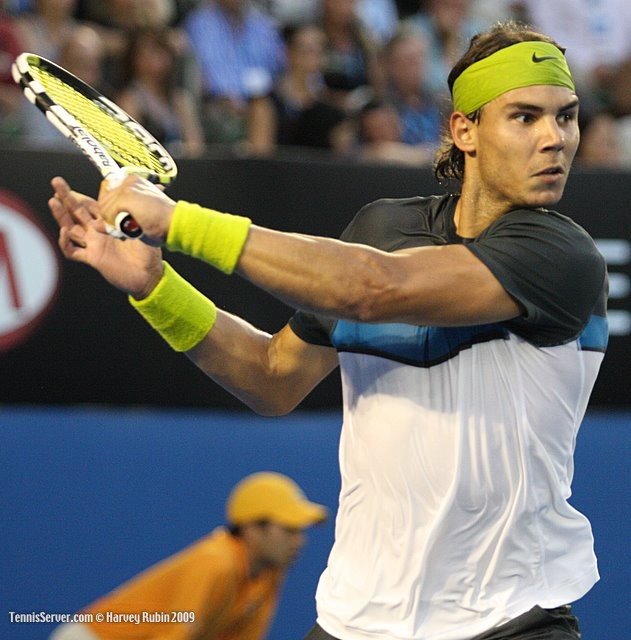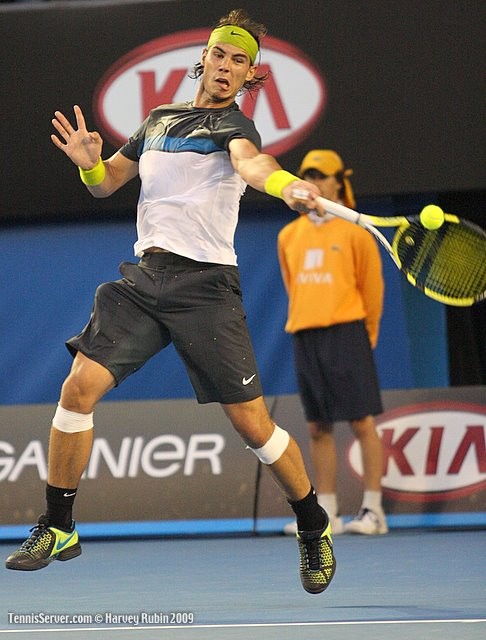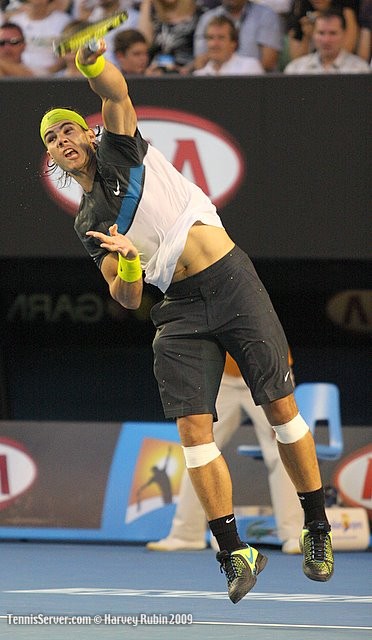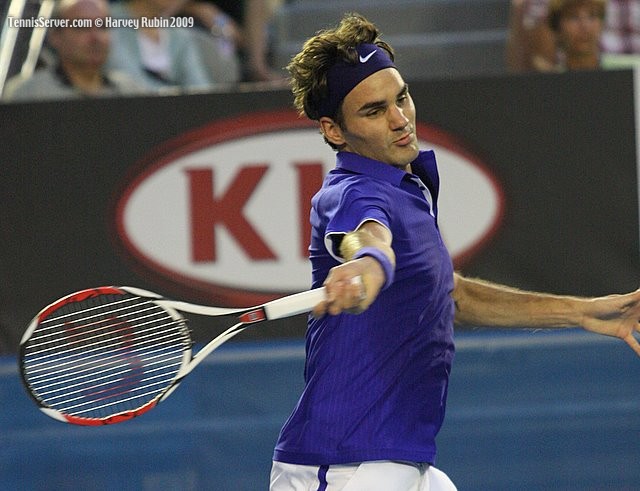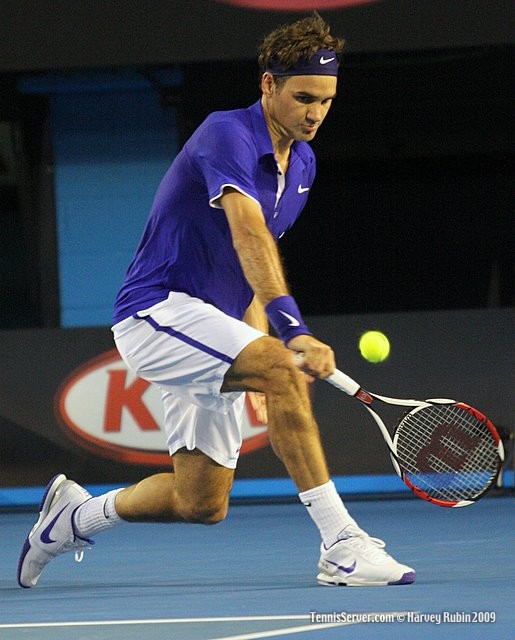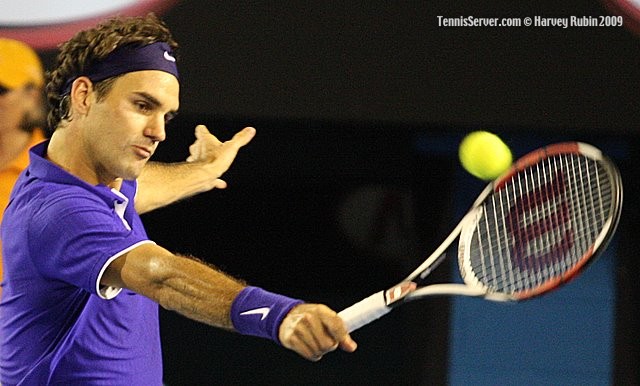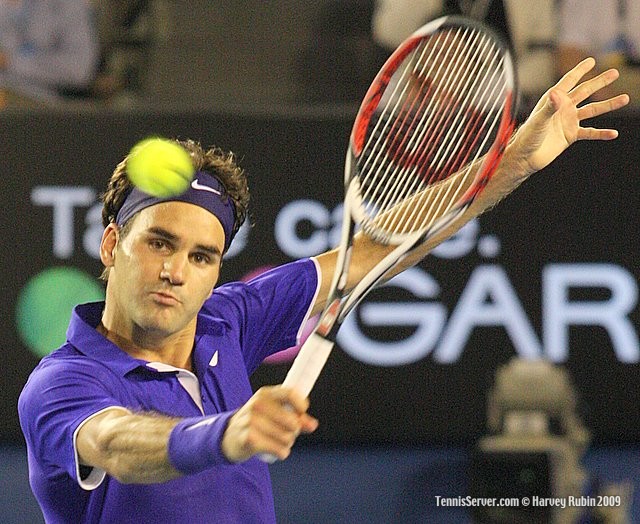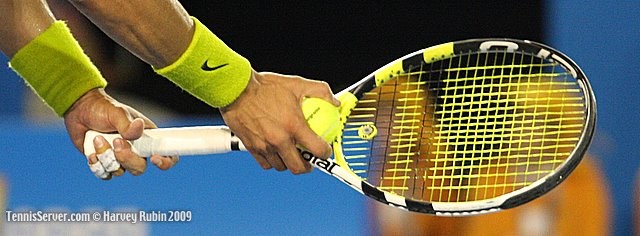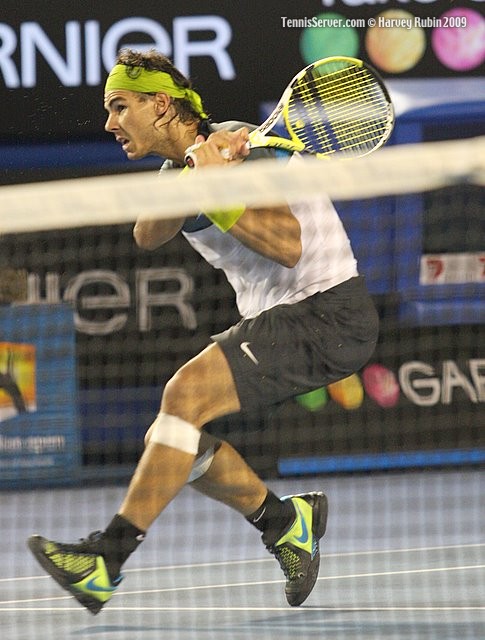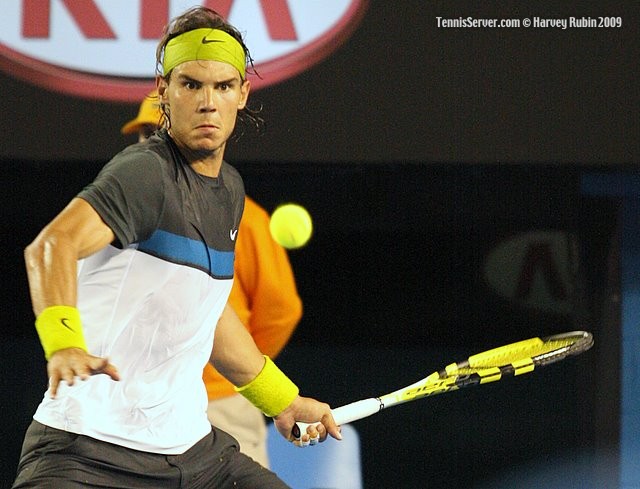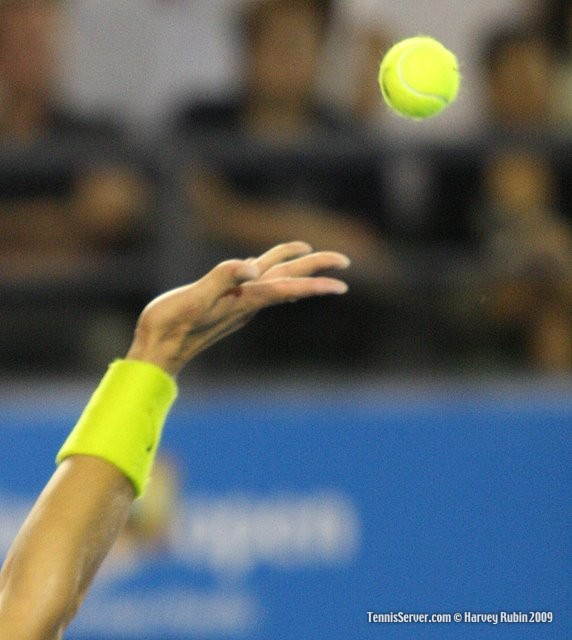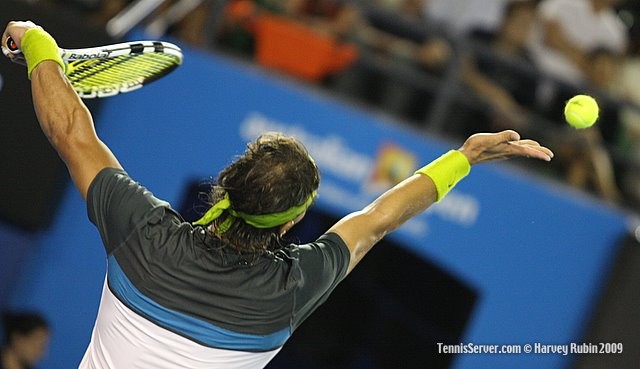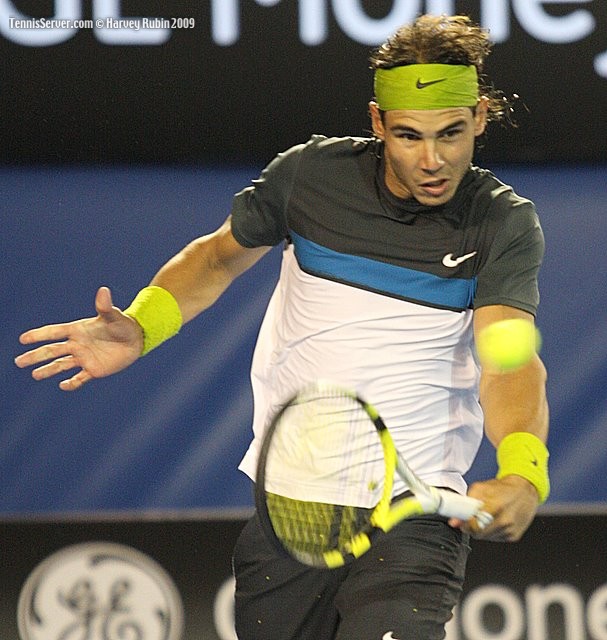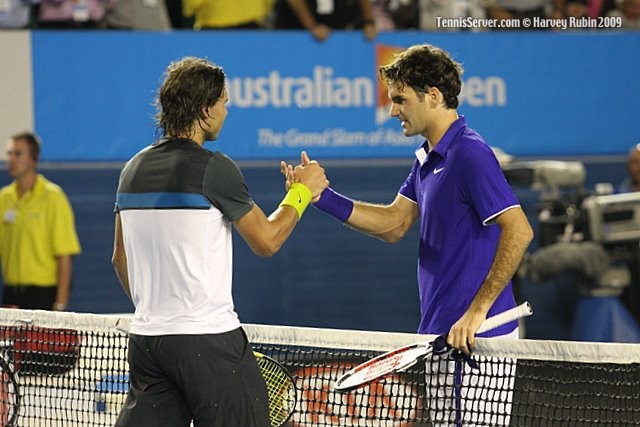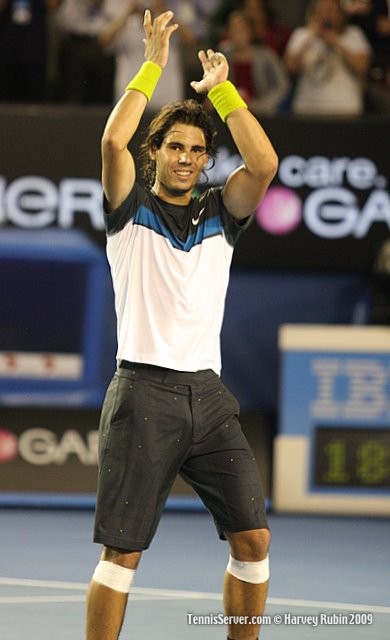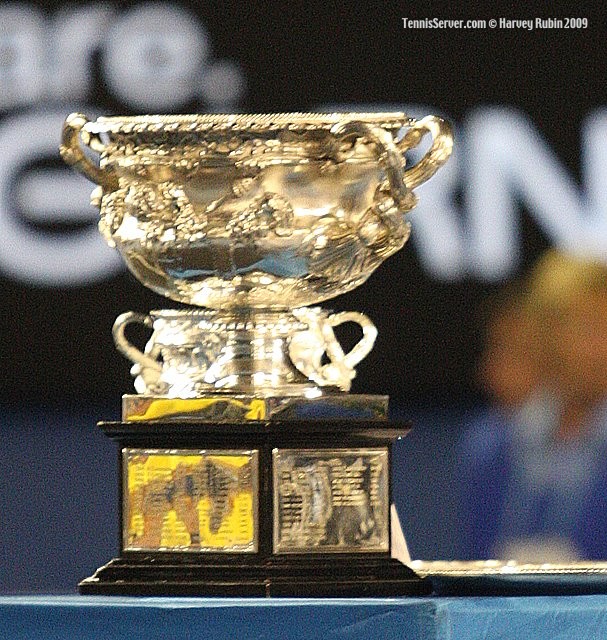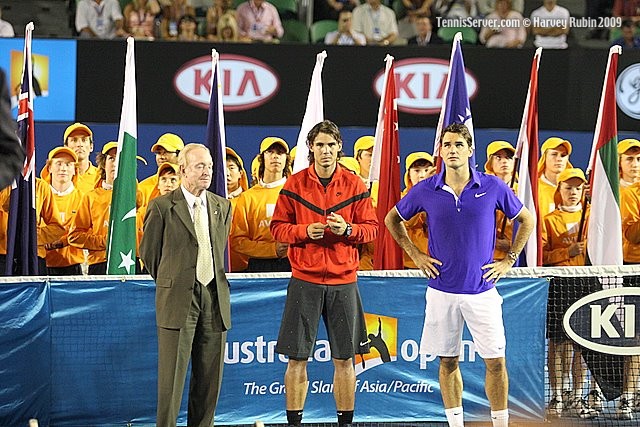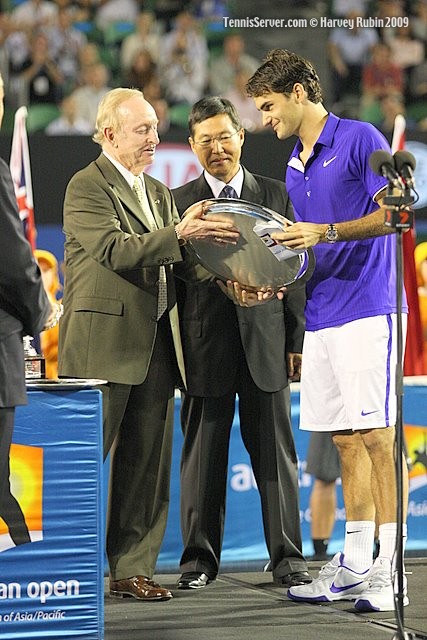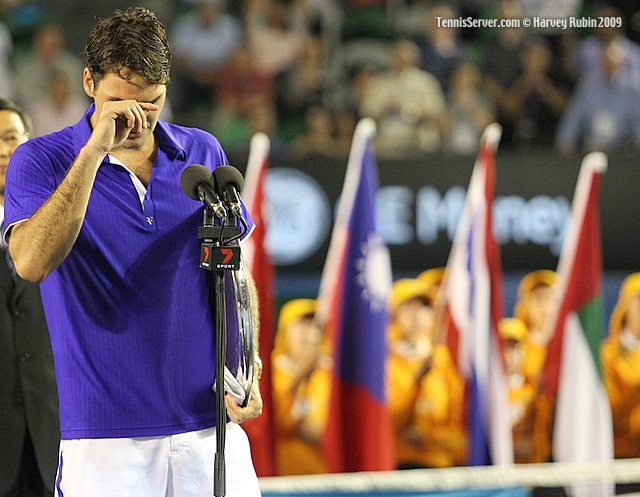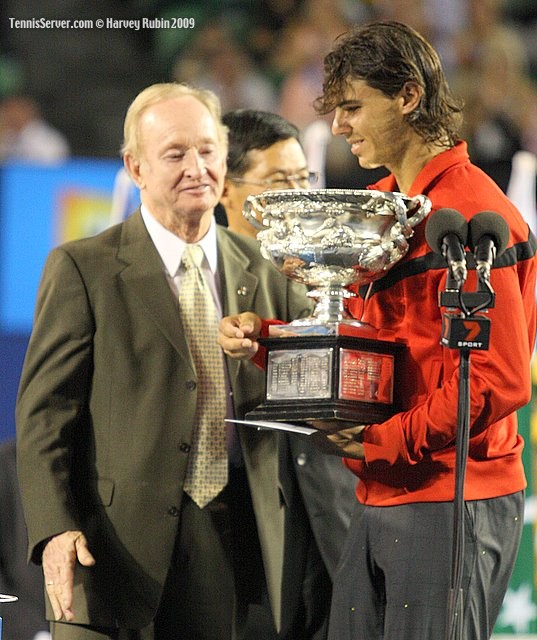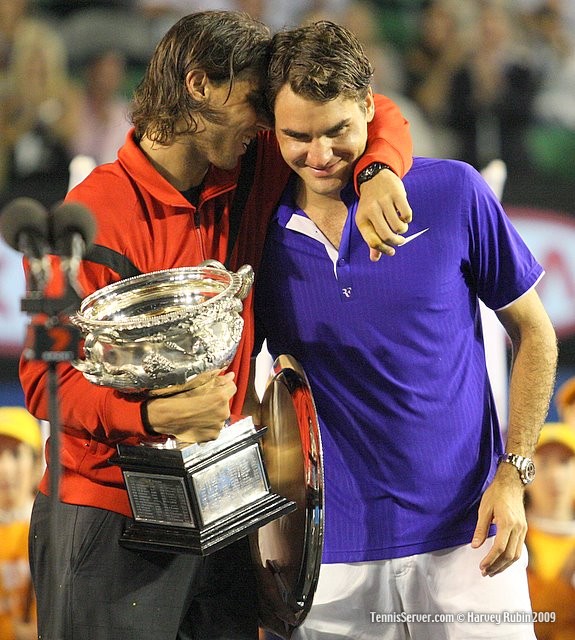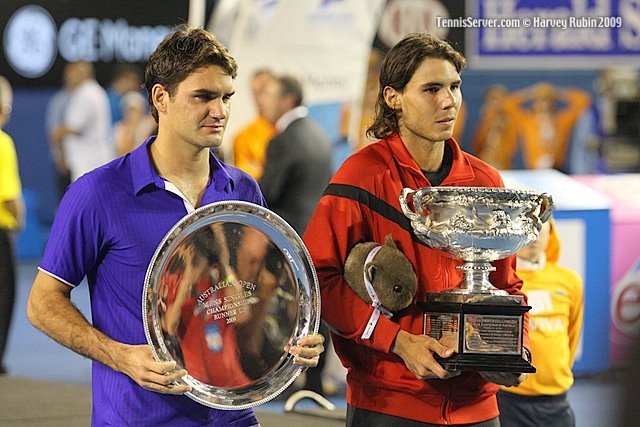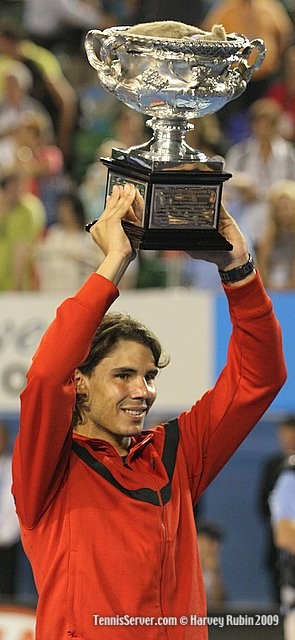Unbeatable, Even by The Best
February 1, 2009 -- What will it take to best Rafael Nadal who, at his first Australian Open final, defeated the man who has been declared the greatest player of all time? The question hung heavy in the air at Rod Laver Arena after Rafael Nadal beat his rival, the #2 player in the world, Roger Federer, in five sets: 75 36 76 36 62.
As Nadal took the first set 75, most figured that the match would go his way; that in almost all cases the man who strikes first hoists the bigger trophy. Then again, statistics cannot predict with perfect assurance.
In the second set, Nadal hinted he was somewhat tired. He had played the longest semifinal in the history of the Australian Open: 5 hours and 14 minutes just 48 hours before this evening's match started. Roger's had 72 hours of rest.
It didn't matter. When Nadal went down break points he mixed up his serving pattern, which was predictably sent to Federer's backhand, and aced his opponent down the service tee. Nadal was not tired. He was keenly aware of every tiny moment, every movement.
Roger managed to break Nadal twice in the second set, though, winning it 63. He converted four of eleven break point chances, an improvement for the Swiss. At the Wimbledon final last year, Roger converted only one of thirteen break point chances. If he could continue to improve, his chances of winning his 14th Grand Slam title would materialize.
However, the Spaniard consistently reached in his bag of tennis tools implementing the right one when necessary. His assets: ultra spin, athleticism, cross-court angles off both wings, and a gritty competitive spirit that does not know how to tire or die.
Rafa moved from one point to the next as if each one were match point. This was his way to suppress the obvious pressure that awaited him. To stay with each strike of the ball was the opportunity and the strategy that would maintain his effectiveness and the likelihood of winning him the title.
Federer, however, continued to suggest he could dominate. He won four consecutive games, going up 2/0 in the third. But that's as far as he got. Nadal broke back and the set continued on serve. Federer had the tiebreak almost won at 5/2, but an unforced error and a double fault lost him the third set.
Andy Roddick predicted after his semifinal loss to Federer that Roger would win the title if he could serve as well as he served against the American -- 70% for the match. But Roger's serve misfired more than it hit its mark this evening. In the second set he was 37% on first serves. He won under 50% on second serve points won, for the match. He would not move around his backhand when presented with a second serve from Nadal, which surely would have changed the dynamics of the event.
"Rafael Nadal served one-hundred percent of his serves to Roger Federer's backhand," Mats Wilander commented, after Nadal clinched his fourth French Open title last year. "Not once did Roger run around it and take a forehand crack at the ball."
Call him stubborn, but Roger Federer only took that advice three or four times this evening. When he ran around and smacked his forehand off a Rafa second serve, the ball was a winner. However, his consistency of determination and his emotional stability wavered. He never reached a comfortable level with his forehand as the weapon that it is and can be.
Perhaps the pressure of a 14th title dragged him down. Perhaps his pride of entering an arena where he has traditionally commanded depressed a gut-level urge to come up with innovative shots, to fight like an underdog, to accelerate his already quick footwork, to counter Rafa's uncanny ability to hit outrageous winners from every nook and cranny of a tennis court.
At four-games all in the third, Federer had three break point chances. Convert one, just one, and he would go up 5/4 and serve for a two sets to one lead. Like clockwork, Nadal erased every single negative number. Love/forty... fifteen/forty... thirty/forty... deuce... ad Federer (he dumped the second serve in the net)... back to deuce... ad Nadal. And, as Roger looked for the backhand out wide the Spaniard served down the service tee. Game to Nadal. Score... Five-games all.
Federer's first serve percentage had risen to 79% in this set, as the tiebreak started. He shot out to a 5/2 lead, but hit a loose forehand. Nadal saw the opening. Tragically for the Swiss he double faulted to lose the tiebreak, just as Nadal double faulted in the fourth set tiebreak at Wimbledon last year after having championship points.
The fourth set looked like a repeat. Federer went up a break. Nadal broke back. Roger broke again. His conversion of two breaks clinched him the fourth. But in all honesty, Roger looked too casual with his anticipation. He did not cover the line in one telling rally, as Rafa ran for what could have been a cross-court flicker forehand but ended up a down-the-line winner with Rafa on the full run. Awesome tennis, no one would deny but it hinted at more trouble for Roger.
Boris Becker said the fifth set is about heart, and only heart. With tennis such a physical sport these days, players need determination plus heart to close out a five-set match, especially at a Grand Slam. A lot was on the line for each player. Pressure could crush either man, if he let down his guard.
It was Roger Federer who indulged in mindful blunder in the fifth. He played a disappointing set, almost, one could say, donating the match to his rival. Roger committed 14 unforced errors to 6 winners. He had no chances to break while Rafa converted 50% of his break points, enough to fill Roger with doubt. Roger's serve, too, disappointed. It was just over fifty percent.
Congratulations to Rafael Nadal for his Australian Open win. At this moment in time he is unbeatable. There's nothing else to write. He now is one of the youngest players to have won three Grand Slams, joining Jimmy Connors and Pete Sampras in that category.
Rafael Nadal and Roger Federer are within reach of a complete Grand Slam. But only Nadal stands poised to capture a calendar-year Grand Slam, the highest achievement in tennis history. With four French Open titles, expectations are with Nadal to win another one. With five U. S. Open titles, expectations should be with Federer to win his sixth. However, with his win here in Melbourne Park, Rafael Nadal has shown the world he can win a major on a hard court. This fact plants a stumbling block in front of Roger Federer. The question: Can he bypass it, blow through it, or leap over it? Without a doubt, he will have to up every aspect of his game and mental capabilities to gat there.
The Rivalry
The tennis world has won today, too. A rivalry like this one is rare in sports. Pete Sampras and Andre Agassi met in sixteen major finals. But Federer and Nadal are on a pace that could break that record. It's true that Nadal has defeated Federer in three of the last four majors.
The tennis -- groundstrokes, serves, volleys, overheads -- are not in question here as much as physical fitness and the players' connection with his self, the moment, and the ball. To move with the ball, a blur of optic yellow dots in real time, maintains a player's concentration. When the point ends, memory must erase itself. It is over. Each man has to bravely and wisely walk to the baseline and begin anew: fresh and ready. They cannot play the score. They cannot assume. They must forget.
Right now, Rafael Nadal strikes again and again, and springs back after situations that would normally sink a player. He never thinks long enough to weaken his possibilities. He has what it takes to win under the most excruciating conditions, against the best in the world, when all doubts are pointed his way.
We are all lucky to have this tennis rivalry. If we keep the rivalry in perspective, then who wins and who loses seems less important. It is the high road for tennis, even when some fans want Roger to win and some fans want Nadal to win. This way we all win.





 You will join 13,000 other subscribers in receiving news of updates to the Tennis Server along with monthly tennis tips from tennis pro Tom Veneziano.
You will join 13,000 other subscribers in receiving news of updates to the Tennis Server along with monthly tennis tips from tennis pro Tom Veneziano. 
